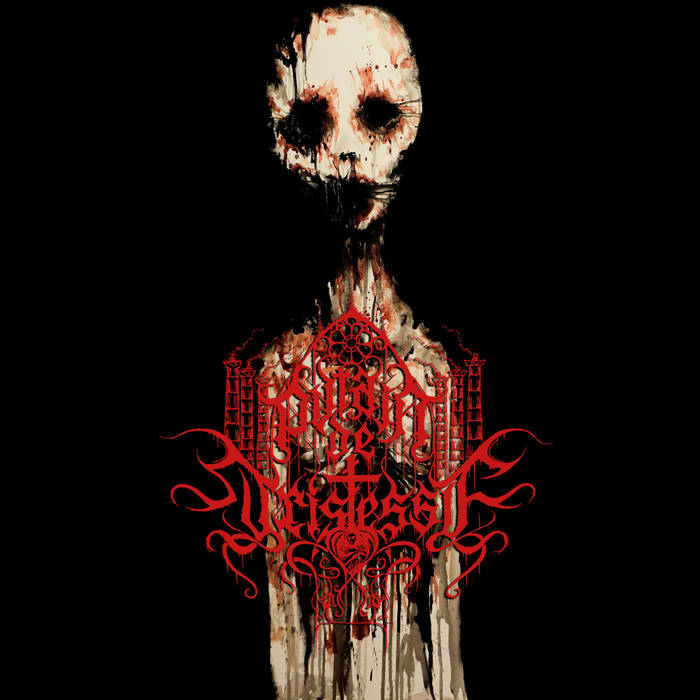
These days, the Norman town of Bayeux is best known for its world-famous 70-meter-long tapestry — an astonishing visual chronicle of the Battle of Hastings in 1066. But those who gaze upon this historic city with a darker soul may uncover something else entirely: Putain de Tristesse, a one-man Black Metal project brought to life under the creative vision of multi-instrumentalist Aarunda.
Prior to this self-titled full-length album, the project released an EP, but for this review, the focus lies entirely on the album — a work that is both emotionally charged and richly layered.
Aarunda, also known from his rawer and more direct project Doska, reveals a different facet of his artistry here. Where Doska punches hard and fast, Putain de Tristesse is a refined vessel for melancholy, introspection, and folklore — all sculpted within an atmospheric Black Metal framework.
The music is both intense and ethereal. Icy riffs cut like blades through textured soundscapes, while sharp, winding guitar melodies weave their way through the darkness. Aarunda’s voice — demonic, tormented, sometimes whispering, sometimes roaring from the abyss — elevates the listening experience into a narrative one. His versatile vocal delivery gives each track a dramatic presence and confirms what becomes increasingly clear: we’re dealing with a true storyteller.
Though my French isn’t strong enough to grasp every lyric in full, the emotional weight is undeniable. This is no hollow screaming — it feels more like a series of incantations, drenched in grief, loss, and perhaps even redemption.
Drawing from the rich tradition of French chanson, “Des Chansons des Jeunes Amants”immediately stands out. The track exudes a melancholic elegance reminiscent of greats like Brel and Ferré, yet it’s disrupted by unexpected shifts and harmonies that border on the progressive. This interplay between nostalgia and experimentation gives the album a unique and compelling dynamic.
That progressive edge is pushed even further on the instrumental track “La Mer.” While the title might evoke images of a calm, sun-drenched sea, what we get is quite the opposite: a sonic storm. The track is wild, almost chaotic, with rolling guitars and ominous modulations that feel like the listener is caught in the eye of a devastating cyclone. It’s not an easy piece and certainly won’t be for everyone, but for me, it’s one of the most fascinating and uncompromising moments on the album.
The more-than-ten-minute opener “L’Héritage” is a true tour de force: a sweeping composition that effortlessly blends diverse influences. From post-rock-like builds to dissonant, nearly doom-tinged passages, and subtle nods to both prog and black metal, the track feels like a narrative journey — honoring and reshaping the musical heritage of multiple generations and genres.
The title track, “Putain de Tristesse,” may well be the album’s emotional core: intense, anguished, but never lacking in grandeur. The atmosphere is bleak, but the melodies are carefully constructed, rich with purpose. At times, it calls to mind Enslaved’s early 2000s era, when they began to experiment with layered compositions and psychedelic textures — without abandoning their black metal roots. That same balance between rawness and sophistication is achieved here with striking success.
Ultimately, this album reveals an artist unafraid to defy conventions — and in doing so, stands out all the more. Not every track will appeal to every listener, but the boldness, vision, and emotional depth on display make this a work that deserves to be heard — patiently, and more than once.
85/100

